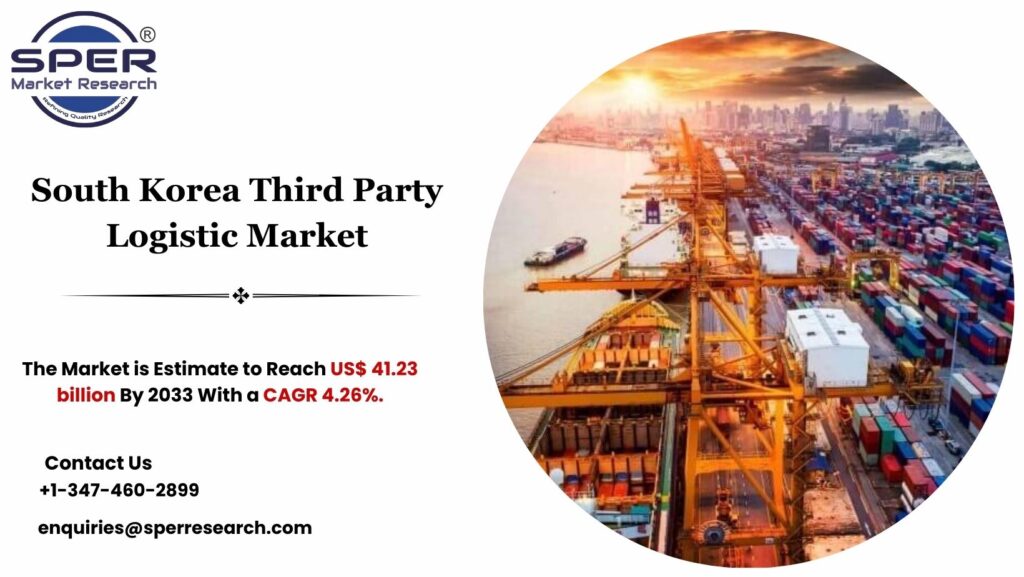South Korea Third Party Logistic Market Growth and Size 2033

The Third-Party Logistics refers to the industry segment where external logistics service providers manage supply chain functions on behalf of businesses. These services include transportation, warehousing, inventory management, freight forwarding, and distribution. Driven by South Korea’s advanced infrastructure, strong e-commerce growth, and global trade connectivity, the industry helps companies reduce costs, improve efficiency, and focus on core operations while outsourcing complex logistics tasks to experienced providers.
According to SPER Market Research, South Korea Third Party Logistic (3PL) Market Size- By Service, By Distributive trade, By End User- Regional Outlook, Competitive Strategies and Segment Forecast to 2033, states that the South Korea Third Party Logistic Market is estimated to reach USD 41.23 billion by 2033 with a CAGR of 4.26%.
Drivers:
The South Korean third-party logistics industry is primarily driven by the rapid rise of e-commerce, which boosts demand for quick and dependable delivery services. Warehouse automation, AI-based route optimization, and real-time tracking are all examples of advanced technology that improve operational efficiency and minimize delivery times. The growing need for specialized services, such as cold chain logistics and high-value commodities handling, drives market growth. Consumer demand for same-day and next-day delivery is driving providers to improve speed and service quality. Furthermore, increased globalization and cross-border trade drive up the need for integrated supply chain solutions. Investments in smart logistics infrastructure, robotics, and Internet of Things (IoT) technologies are enabling more precise inventory management and predictive analytics, which is fueling market growth.
Request a Free Sample Report: https://www.sperresearch.com/report-store/south-korea-third-party-logistic-market.aspx?sample=1
Restraints:
Many third-party logistics companies’ profit margins remain limited because of high operational costs such as personnel, fuel, and infrastructure investments. Rising expenses for warehouse setup, improved technology adoption, and transportation management put additional demand on financial resources. Regulatory complications, such as frequent changes in logistics policies and customs processes, present substantial hurdles, especially for organizations that manage cross-border operations. Compliance with stringent safety, environmental, and labor laws increases operating burdens. Furthermore, severe competition among domestic and foreign firms creates ongoing pricing pressure, making it difficult for individual businesses to differentiate their services and maintain long-term growth. Smaller providers frequently struggle to invest in cutting-edge technologies, whilst larger players face issues in managing operational efficiency over vast networks. The Seoul Capital Area dominates South Korea’s Third-Party Logistics market due to its dense population, major industrial base, and well-developed transportation infrastructure. Some of the major companies are CJ Logistics, DHL Korea, Hanjin Transportation, Hyundai Glovis, Kerry Logistics, Korea Express, Kuehne & Nagel Korea, LG CNS, Pantos Logistics, Samsung SDS, Others.
For More Information, refer to below link: –
South Korea Third Party Logistic Market Share
Related Reports:
Saudi Arabia Road Freight Transport Market Growth
North America Turbocharger Market Size
Follow Us –
LinkedIn | Instagram | Facebook | Twitter
Contact Us:
Sara Lopes, Business Consultant — USA
SPER Market Research
enquiries@sperresearch.com
+1–347–460–2899





